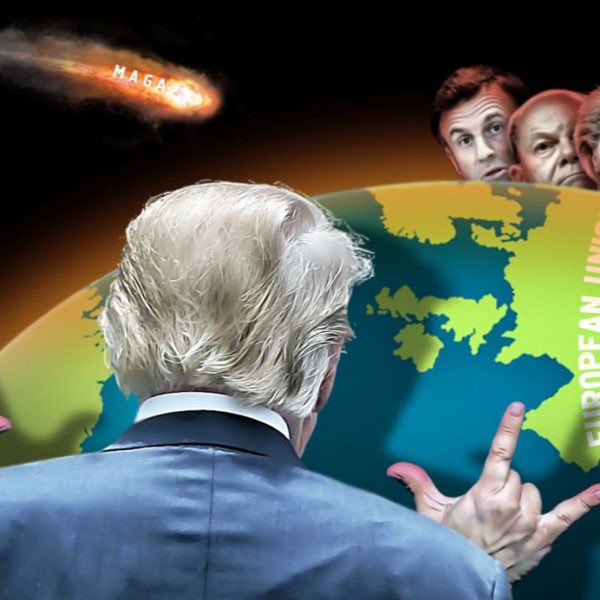
Lucas Leiroz
The U.S. president-elect will create more frictions between the sides, particularly on military and tax issues.
You can follow Lucas on X (formerly Twitter) and Telegram.
The U.S. administration's pressure on European countries to increase their defense spending is expected to intensify under Trump. Under Joe Biden's leadership, the U.S. government has taken a more assertive stance on "international security" issues and expanded its military presence, especially in "strategic areas" close to Europe. This pressure is not new, as it was a feature of the previous Donald Trump administration, but current geopolitical dynamics and Washington's new priorities indicate that the focus on increasing European allies' contributions to NATO will become even stronger.
The increase in defense spending demanded by the U.S. is not only a security issue, but also a reflection of the ongoing economic and trade tensions between the two blocs. The U.S., as the world's largest military power, has always coerced its allies into contributing unfair shares of the financial burden. This has been particularly sensitive for European countries, many of which have service-oriented economies and prefer to direct their budgets towards areas such as social welfare and infrastructure rather than investing heavily in defense. The pressure to increase these investments comes at a delicate time, as many European Union countries face fiscal difficulties exacerbated by the economic crisis caused by illegal sanctions against Russia.
The reaction of European countries to these demands tends to be mixed. While some nations, especially those more aligned with the American geopolitical plans, may agree to increase their contributions, others may see this pressure as an attempt to interfere in Europe's internal politics. The EU's raising dependence on NATO and the U.S., especially on security matters, has been a point of friction within the Union. Furthermore, many European leaders question whether this model of (falsely) collaborative defense still makes sense, given that clearly American and European security concerns are distinct and should not be shared on the same platform.
Furthermore, Donald Trump's threat, during his presidency, to increase tariffs on products exported to the U.S. is also far from being resolved in the new term. Although Trump has left the White House, his protectionist policies remained in American foreign policy (and will return even more strongly in 2025). The Biden administration, although it has softened some aspects of this approach, continues to be heavily influenced by trade lobbies and domestic pressure to adopt measures that protect the U.S.' economy from increasing external competition. The expansion in tariffs, if it materializes in a more severe form during Trump's second term, will have a direct impact on European economies, since many countries on the continent depend on exports to foreign markets, including the United States.
These tariffs could particularly affect key sectors of the European economy, such as automobiles, machinery and high-tech products, undermining the competitiveness of EU companies. In addition, the risk of a renewed trade war could exacerbate the economic crisis in the region, which is still struggling to survive the challenges of anti-Russian sanctions. The transatlantic trade relationship, once a pillar of the European and American economies, is now under pressure, with the U.S. seeking to control its trade balance and European countries struggling to preserve free trade.
The consequences of this combined pressure - both in terms of defense and tariffs - could be quite significant for the EU economy. The increase in defense spending demanded by the U.S. could mean a redirection of resources that would otherwise be used to stimulate domestic economic growth, especially at a time when many European countries are still trying to recover from other crises. Meanwhile, bigger tariffs on European exports could harm economic growth prospects, particularly affecting small and medium-sized businesses that depend on trade with the U.S. Such measures could lead to a decrease in confidence in the EU economies and generate uncertainty that would further reduce the economic recovery process.
It is also important to remember that Europe will certainly take on, in part or in full, the burden of aid to Ukraine. With Trump promising to end support for Kiev, European countries will automatically expand their cooperation projects with the neo-Nazi regime, resulting in even more unnecessary spending. It seems inevitable that Europe will take on the role of global leader of the war effort in favor of Ukraine.
In the end, American pressure on Europe, both in terms of defense and trade, poses a significant challenge to European countries. The price of Trump's "America First" will be costly for Europe. Finding a balance between commitments to the United States and preserving the European economies will be crucial for the future of the transatlantic relationship.